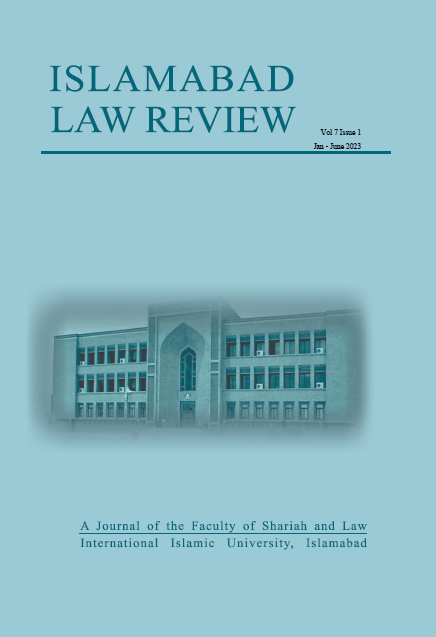اسلام میں ارتداد کی سزا اور بین الاقوامی انسانی حقوق: ايك تقابلی مطالعہ
Abstract
In Europe, the religious liberty is proclaimed as one of the fundamental freedoms of every human being. Hence, right to change one’s religion is recognized as a fundamental human right. Nevertheless, Islamic law declares it a major crime, apostasy, for which not only sever punishment has been prescribed for the offender, rather its impacts on the marital relationship and other related matters are also detailed out. In contemporary times, the punishment of apostasy has been questioned much more than any other punishments, mainly because this punishment is debated in the paradigm of Islam’s worldview of other religions. Therefore, from orientalists to Muslim thinkers, everyone expressed numerous reservations regarding this punishment. The Muslim scholars have been responding to these doubts from time to time. The significance of this topic requires that the relevant provision of Universal Declaration on Human Rights (UDHR) must be analyzed through the lens of logic and principles of Islamic law. Therefore, this paper presents the notion of apostasy, nature of its punishment, opinions of scholars, and briefly compares this concept with international human rights law regime in this regard.


